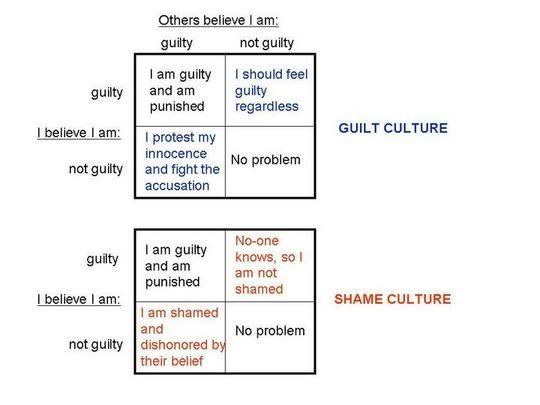This is a late response, I've just found this thread -
Which religions are guilt based?
Which are shame based?
Are there differences in the kinds of guilt & shame?
I would say that there definitely are such differences. Mainly in the sense whether the feelings of guilt and shame are directed at a person, or at a person's actions.
In Christianity, the focus is on the person, ie. "you're a bad person if you do such and such". Even though it is said that humans will be judged by their actions, it is still the person then who goes either to heaven, or to hell.
Particular traits and qualities and even actions seem to be considered as an unalienable part of the person, the "who you really are".
As far as I know Buddhism, it's different, the focus is on the action. They don't have an understanding and implications of "person" as Christians do. A person's particular traits and qualities and actions are a matter of conditioning, not about "who you really are".
Buddhism also has a different conception of shame and guilt than we in the West tend to have.
They speak of hiri (conscience) and ottappa (moral dread; concern for the results of evil actions). See the
Index at Access to Insight.
They conceive them
- as a quality that distinguishes the true contemplative,
- as a basis for acquiring discernment,
- as a quality that safeguards the world,
- as a rare and fine quality,
- as a treasure,
- as a guardian,
- associated with skillful qualities.
Other than that, I think guilt is that which sticks with you forever and which you cannot undo.
Shame is that when you feel you've done something which is below you.
According to this, Christianity would be typically guilt-based, and karmic religions shame-based (ie. when feeling you've done something which is "below you" this is to mean that you've done something which is below someone aspiring for Enlightenment).

